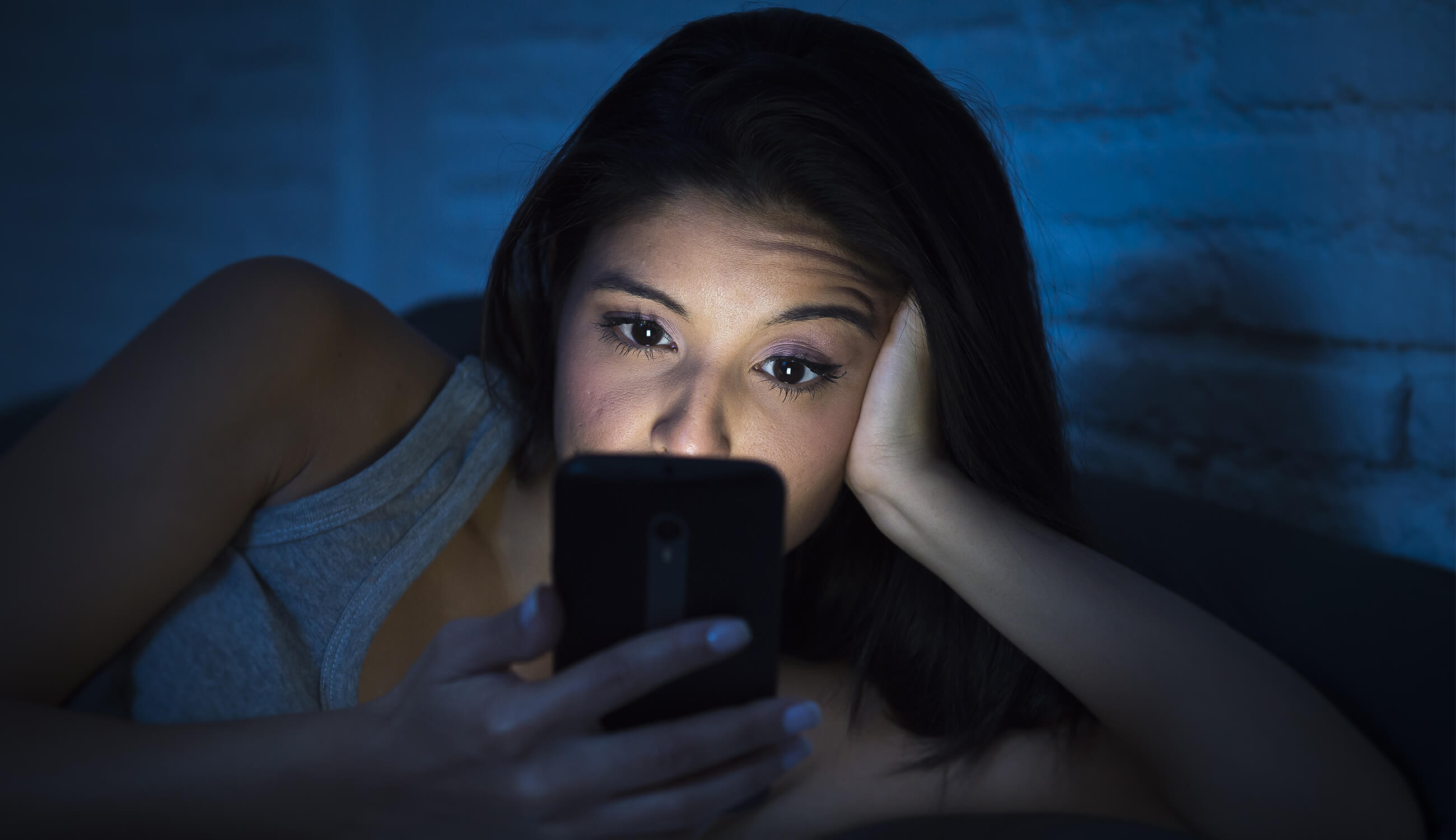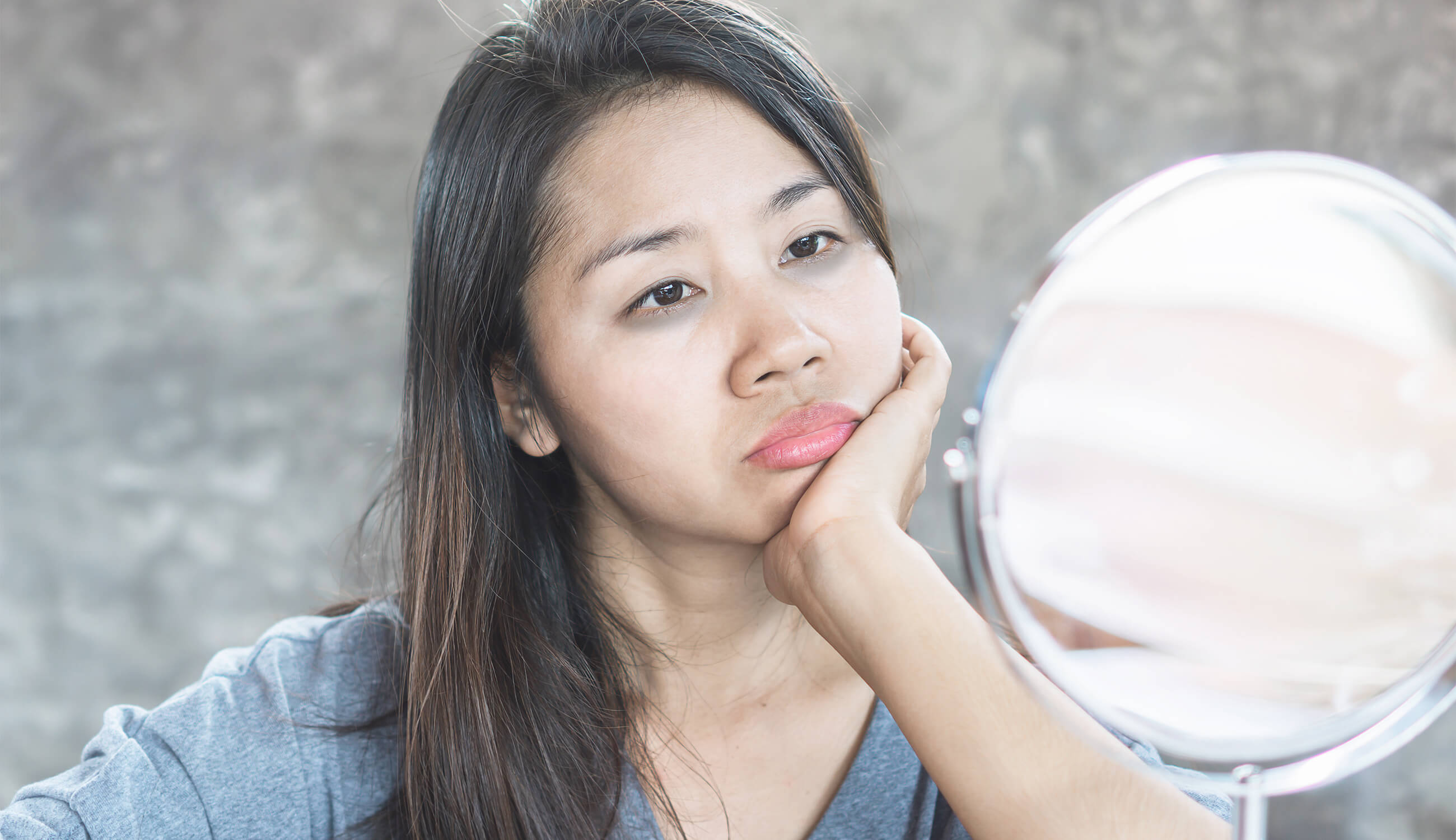A good night’s sleep is essential for energy, stress and overall health. But if you have quality Zzz‘s, you’ll wake up too looking healthier? It turns out that sound sleep is not only good for the body, but it may also be the closest thing to a fountain of youth.
In honor of World Sleep Day, we wanted to share how the value of sound sleep leads to a long list of benefits for your health and appearance, including your skin, hair and nails. We’ll look at the best sleep habits, the side effects of lack of sleep on your beauty routine, and why there’s some scientific truth to the concept of “beauty sleep.”
What are good sleeping habits?
If there’s one thing we’re all guilty of these days, it’s probably not getting enough sleep. Aside from suffocating schedules, social constraints, and overwhelming to-do lists, the recommended 7-9 hours of shut-eye we’re encouraged to get can seem more like a dream.
Before you throw on your sleep mask, know that a few lifestyle tweaks could get you closer to your sleep goals. While you may not be able to control the factors that interfere with your sleep, you can adopt good habits that encourage better shut-eye—without counting sheep. Get started with these simple tips:
Customize your schedule gradually
Make sleep adjustments slowly and give yourself a grace period to adjust to these changes. The goal is to go to bed at the same time and get up at the same time – even on weekends!
Don’t be a Gremlin
If you haven’t seen the 80s horror movie, you can still guess what we’re in for. Eating and drinking too late at night can disrupt your bedtime routine. Avoid eating late, and on that note, avoid caffeine late in the day, as well as alcohol and nicotine. All of these will affect your sleep cycle.
Optimize your bedroom environment
Make sure your bedroom supports healthy sleep habits. Keep things quiet, dim to dark, relaxing and at a comfortable temperature. Reevaluate the lifespan and quality of your mattress, pillows and bedding for ultimate comfort.

Reduce exposure to blue light
A big one! At home and at work, take breaks from the blue light emitted by devices such as smartphones, laptops and TV screens during the day. Make sure to turn them off at least an hour before bed or set them to night mode. This could help with sleep, eye and skin problems.
Treat yourself well
Exercise and eat a healthy diet. According to the CDCbeing physically active during the day, but at least two hours before bed, can help you fall asleep more easily at night. If you’re hungry before bed, eat a light, healthy snack.
PRO TIP: There’s a reason parents schedule their child’s bath time right before bedtime. Taking a hot bath doesn’t have to be a long, luxurious time commitment (although we recommend it). You can keep it to just 10-15 minutes, but be sure to add deeply relaxing bath treatments to help you drift off to sleep.
4 Ways Sleep Helps Your Body
A good night’s sleep does more than prevent the dreaded ‘look tired’ from your colleagues or shine like a goddess all day – sleep actually repairs you. While you’re in shutdown mode and getting a good snooze, your body is busy restoring and repairing different functions.
So it should come as no surprise that getting enough sleep leads to a long list of benefits for your body and overall health.
Promotes healing
Have you ever wondered why doctors emphasize plenty of rest after surgery? It is an important part of the healing process. While you sleep, your body has the opportunity to release hormones that encourage tissue growth to repair blood vessels. This helps wounds heal faster!
It relaxes and repairs the body
When you sleep well, there is less demand on your bodily functions. Your blood pressure will drop, giving your heart a break – in a good way. Hormones are released that can restore sore or damaged muscles, reduce inflammation and aid in healing.
It fights diseases
Doctors will also give you a prescription for lots of rest when you are sick. While you sleep, your immune system releases a type of small proteins called cytokines. If you are sick, these powerful proteins come to the rescue to help your immune system fight the infection or virus.
It helps you feel better
With minimal demands on your sleeping body, your mind and body can focus on restorative tasks and take a break. When you wake up after a good night’s sleep, you feel a little easier to face the day.

The side effects of lack of sleep can affect your beauty routine
If sleep deprivation can cause your hard-working body to struggle, imagine what it can do to your appearance? Lack of sleep has side effects on your otherwise glorious outer self – including hair, skin and nails. Sleep and skin are directly connected – we’ll tell you how!
More wrinkles
The skin supports collagen formation when you sleep as part of its repair process, helping to improve firmness and reduce sagging. If you’ve been in (no) sleep mode for a while, your body probably hasn’t had enough time to repair itself. This could lead to more noticeable wrinkles and skin that doesn’t look as plump or youthful as we’d like.
PRO TIP: Treat crow’s feet while you sleep with a powerful retinol eye cream!
Dull complexion
Remember that quote about glowing like a goddess after a good night’s sleep? If you don’t get enough shut-eye, your body could have less blood flow to the skin. This means you wake up with a dull or dull complexion.
Puffy panda eyes
One of the most recognizable side effects of lack of sleep, dark circles and bags under the eyes appear when you don’t get enough sleep. This may be due to reduced blood flow to this sensitive area, drinking alcohol the night before, or dehydration. This can also happen after too much sun exposure.
Bad hair days
Ever wonder why the less sleep you get, the more bad hair days you have? This is because the hair gets everything it needs to grow from the blood stream. Since blood flow is reduced when we don’t close our eyes, the hair receives less nutrients, weakens and is more prone to breakage.
Products do not work
Even if you’re wearing your favorite PM moisturizer, your products don’t get a chance to shine if you don’t get a good night’s sleep. With less blood flow, your pores don’t open as much – meaning your skin can’t absorb PM products and their benefits overnight.
After all, it turns out there is some scientific truth behind the concept of beauty sleep. By combining a healthy lifestyle with small lifestyle changes and a big dollop of steady shut-eye, you can give your body the repair and restoration it needs to be a better you – inside and out.
Frequently asked questions about sleep and skin health
How does sleep affect the health of your skin?
Without adequate sleep the immune system weakens, which can affect the amount and strength of collagen. Sleep deprivation is also associated with paler skin, more wrinkles or fine lines, and dark circles under the eyes. Adequate sleep keeps the skin hydrated and improves its ability to protect and repair itself. During sleep, your cells are activated to repair and rejuvenate your tired skin. It’s like a nightly skincare rescue mission where your skin is ready to face a new day with a fresh face.
What are the best sleep habits to improve your beauty routine?
Create a quality sleep environment, maintain a regular sleep schedule, exercise regularly, relax at night and leave electronics before bed. Taking a warm bath can also improve your sleep.
How can lack of sleep cause wrinkles and fine lines?
Without adequate sleep the immune system weakens, which can affect the amount and strength of collagen. As a result, skin health declines, possibly causing wrinkles and fine lines.
Why is sleep important for glowing skin?
Sleep plays a crucial role in the healing and rejuvenation of our skin. During the night, while we are in the deep stages of sleep, our body undergoes a myriad of repair processes, including the regeneration of skin cells. Lack of sleep disrupts this critical repair cycle, leading to a dull and lackluster complexion. So a good night’s rest will make you wake up with glowing skin.
How can sleep deprivation lead to dark circles and bags under the eyes?
As you skip your eight hours of sleep, oxygen to the eyes decreases, which causes the blood vessels to dilate, giving you those bloodshot eyes. Deoxygenated or dilated, blood vessels become darker and more easily seen through the skin. This, in turn, causes dark circles.
